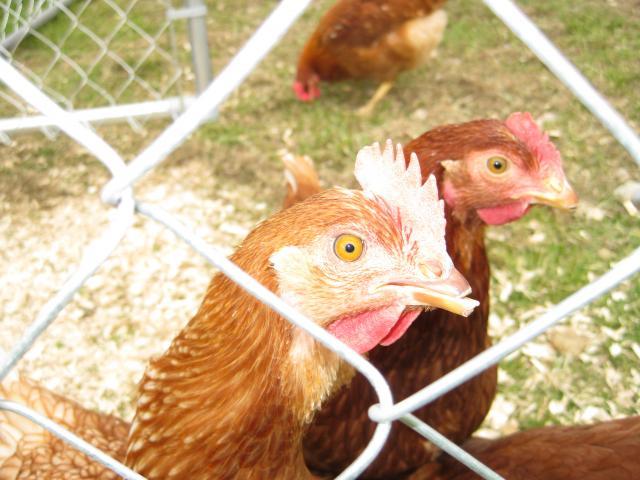Hello everybody,
I have ordered my chicks already but they don't arrive until april 15th. I was just wondering about the beak trimming and vaccines that the hatcheries offer. Is this something that I should have opted for? Or is it unnecessary with a small flock of 25? I figured that it was mainly for those bigger operations so I didn't get any of it done. What do you all think?
Also, my feed store offers both medicated and non medicated chick crumble. I want to be as "organic" as possible but I don't want to lose any of my chicks to disease. I thought I sould use the medicated starter then go non-medicated for the grower and layer rations. What do you think? Do I need the medicated or should an isolated backyard flock be fine on the non-medicated ration?
I'm just concerned because the coop I am using had someone elses chickens in it and I don't know the history of them. I cleaned and disinfected as best I could but I wouldn't want my chicks to catch something.
Do any of you use the super booster in the water? I assume it's like vitamins and or electrolytes or something.
I live in Northern Alberta but have no idea how common the Mareks, Bursal, Immucox-Cocci diseases are here.
Anyway, any input would be helpful.
Thanks to everyone posting pictures. It helps to tide me over. Feels like I'm waiting forever.
Cheers,
Jen
I have ordered my chicks already but they don't arrive until april 15th. I was just wondering about the beak trimming and vaccines that the hatcheries offer. Is this something that I should have opted for? Or is it unnecessary with a small flock of 25? I figured that it was mainly for those bigger operations so I didn't get any of it done. What do you all think?
Also, my feed store offers both medicated and non medicated chick crumble. I want to be as "organic" as possible but I don't want to lose any of my chicks to disease. I thought I sould use the medicated starter then go non-medicated for the grower and layer rations. What do you think? Do I need the medicated or should an isolated backyard flock be fine on the non-medicated ration?
I'm just concerned because the coop I am using had someone elses chickens in it and I don't know the history of them. I cleaned and disinfected as best I could but I wouldn't want my chicks to catch something.
Do any of you use the super booster in the water? I assume it's like vitamins and or electrolytes or something.
I live in Northern Alberta but have no idea how common the Mareks, Bursal, Immucox-Cocci diseases are here.
Anyway, any input would be helpful.
Thanks to everyone posting pictures. It helps to tide me over. Feels like I'm waiting forever.
Cheers,
Jen

